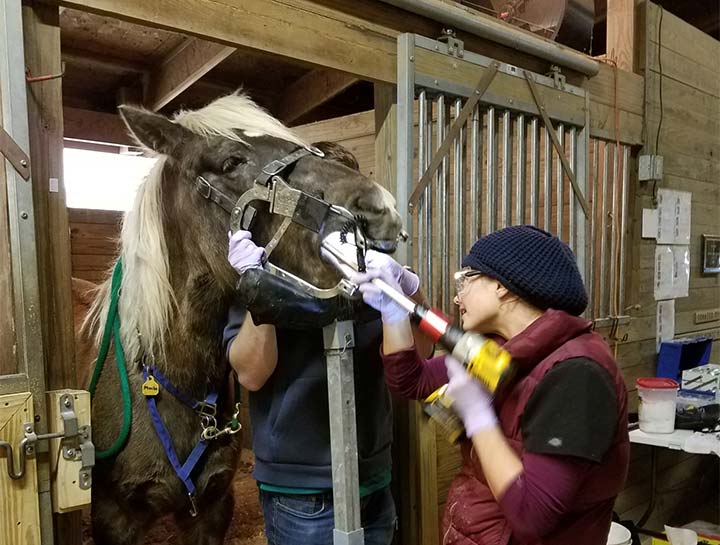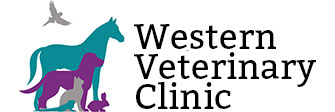Equine Dentistry
Focused on relieving the pain and having a happier healthier horse.
Imagine having a sore tooth, then having someone put a metal bit in your mouth and start moving the thing around. How well would you respond when the metal hits the sore spot?
Horse’s teeth need an exam twice a year at vaccination times to check for sharp edges and any signs of dental disease, starting at 1 ½ years of age. They should also be checked at any time your horse drops feed, balls feed up in their cheek or has a foul odor from the mouth. Older horses may need this procedure done on a more frequent basis. There are many diseases in the equine mouth that result in pain, and associated training problems. A horse’s teeth, unlike humans, keep growing throughout their lives. Since their teeth don’t line up exactly, the inside of the lower and the outside of the uppers keep growing and cause points. Impacted caps (retained baby molars) can be a problem in young horses and need to be pulled. Wolf teeth in young horses can cause problems when a bit is used. These will be in usually by 2-3 years of age and will also need to be removed. Dental problems including malocclusion, periodontal disease, cavities, abscesses, sinusitis as well as others can be found and corrected at the time of the dental exam. Dental problems are as varied as is their treatment, but treatment is always focused on relieving the pain and having a happier healthier horse.
Western Veterinary Clinic has equine facilities to do routine surgical dental procedures your horse may need. We also have a Mobile Equine Diagnostic Center so we can perform these services wherever your horse is. Horses can be are placed in custom built portable dental stocks that provide better safety of horse and handler alike.
Along with precision dental work we can place fillings for tooth decay, clean the tartar off teeth, and leave your horse’s mouth with a minty fresh smell. Additionally, through utilizing our surgery facilities dental extractions are performed with maximum recovery.
The following is just a small list of possible problems that could have their root in poor dental health: malnutrition, weight loss, back pain, lameness, ulcers on cheek and tongue, TMJ, unresponsiveness to bit, saddle sore. More and more horse owners are realizing the benefits of quality equine dentistry and are thrilled with the results.
Procedures Include:
- Alveolar Therapy
- Deciduous Cap Removal
- Dental Anesthesia
- Dental Records
- Dental X-Ray
- Endodontics (Cavity Filling)
- Extractions
- Occlusal Balancing
- Orthodontics (Bracing & Bridging)
- Pain Therapy
- Periodontics
- Root Canal Therapy
- Tooth Reconstruction
- Wolf Tooth Extractions
- Infundibular Sealing
- Enamel and Cemental Therapy
For more information on our horse dentistry services please contact us at (574) 234-3098 or schedule an online appointment.

